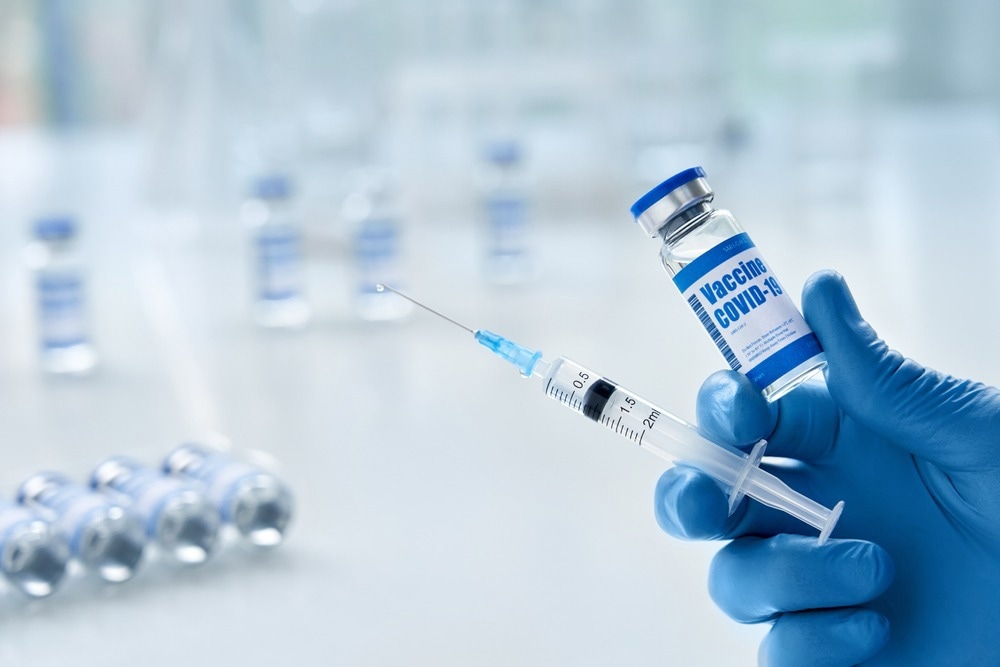In a recent study posted to the medRxiv* server, researchers investigated the vaccine efficacy (VE) of various coronavirus disease 2019 (COVID-19) vaccines against the BA.2, BA.4, and BA.5 sub-lineages of the severe acute respiratory syndrome coronavirus 2 (SARS-CoV-2) Omicron variant.
 Study: Effectiveness of the COVID-19 vaccines against severe disease with Omicron sub-lineages BA.4 and BA.5 in England. Image Credit: Ground Picture/Shutterstock
Study: Effectiveness of the COVID-19 vaccines against severe disease with Omicron sub-lineages BA.4 and BA.5 in England. Image Credit: Ground Picture/Shutterstock

 This news article was a review of a preliminary scientific report that had not undergone peer-review at the time of publication. Since its initial publication, the scientific report has now been peer reviewed and accepted for publication in a Scientific Journal. Links to the preliminary and peer-reviewed reports are available in the Sources section at the bottom of this article. View Sources
This news article was a review of a preliminary scientific report that had not undergone peer-review at the time of publication. Since its initial publication, the scientific report has now been peer reviewed and accepted for publication in a Scientific Journal. Links to the preliminary and peer-reviewed reports are available in the Sources section at the bottom of this article. View Sources
Background
The UK experienced a surge of BA.4 and BA.5 cases after April 2022, despite the recent BA.1 and BA.2 wave. There have been extensive vaccination efforts since December 2020, with up to four doses offered by March 2022 to high-risk groups. The emergence of newer variants and sub-lineages highlights the need to investigate and monitor the effectiveness of the currently used vaccines in limiting severe infections by all co-circulating sub-lineages.
About the study
In the present study, researchers in the UK estimated the effectiveness of the vaccines currently being administered in preventing hospitalization following BA.4 and BA.5 sub-lineage infections compared to BA.2 infections, with all three sub-lineages co-circulating.
The BA.4 and BA.5 spike proteins are similar to those of BA.2, with additional mutations that increase their ability to evade antibodies in vaccinated individuals or BA.1-infected. The COVID-19 vaccination program in the UK offered a primary course of two doses of the Pfizer-BioNTech (BNT162b2), AstraZeneca (ChAdOx1-S), or Moderna (mRNA-1273) vaccines, and a third dose of either BNT162b2 or mRNA-1273 (half-dose). By March 2022, a fourth dose was being offered to the 75 years or older and high-risk groups.
The team carried out a test-negative case-control study to estimate the VE against hospitalization in individuals 18 or older infected with BA.2, BA.4, or BA.5 sub-lineages. The VE was defined as the odds of vaccination in cases divided by the odds of vaccination in controls, subtracted from one. They also compared the incremental VE of individuals with a third or fourth dose with those who had their second dose 25 weeks ago and had waned immunity. The incremental VE of the third and fourth dose vaccines were also compared by the manufacturer.
The data consisted of 32,845 individuals who underwent a polymerase chain reaction (PCR) test at a hospital or public health laboratory and were hospitalized between April 18 and July 17, 2022. Of these, 25,862 were negative and formed the control group. The number of BA.2, BA.4, BA.5, and BA.4 or BA.5 cases were 3,432, 273, 947, and 2,331, respectively. The vaccination status information was procured from the National Immunization Management System (NIMS) database, and the hospital admission data was gathered from the Secondary Care Hospital Admission Data (SUS) database.
Results
The researchers found no evidence of reduced effectiveness of the vaccines against hospitalization for the sub-lineages BA.4 and BA.5 as compared to BA.2. The incremental VE in individuals with third or fourth doses of vaccination was 56.8%, 59.9%, and 52.4% for BA.4, BA.5 and BA.2 respectively, which waned to 1.5%, 23.3%, and 9.8%, respectively, at 25 weeks or more since the second dose.
Vaccine-specific incremental VE for the third or fourth dose did not show any significant difference for combined BA.4 and BA.5 cases compared to BA.2. The Moderna vaccine had a slightly higher incremental VE compared to the Pfizer-BioNTech vaccine, but the confidence intervals overlapped. The mRNA-1273 (Moderna) vaccine had a 62.2% incremental VE at two to 14 weeks after the third or fourth dose, which decreased to 42.0% at 15 to 24 weeks, while that of the BNT162b2 (Pfizer-BioNTech) vaccine decreased from 49.6% at two to 14 weeks to 16.7% at 15 to 25 weeks.
Conclusions
In summary, the study results showed that there was no decrease in VE against hospitalization for infections with SARS-CoV-2 Omicron sub-lineages BA.4 and BA.5 as compared to those with BA.2. Vaccine efficacy did not seem to vary significantly according to the manufacturer either, with third or fourth doses of either mRNA-1273 or BNT162b2 vaccines conferring similar levels of protection against severe infections. The findings of this study confirm that the vaccines currently administered in the UK effectively protect against severe Omicron BA.4 and BA.5 infections.

 This news article was a review of a preliminary scientific report that had not undergone peer-review at the time of publication. Since its initial publication, the scientific report has now been peer reviewed and accepted for publication in a Scientific Journal. Links to the preliminary and peer-reviewed reports are available in the Sources section at the bottom of this article. View Sources
This news article was a review of a preliminary scientific report that had not undergone peer-review at the time of publication. Since its initial publication, the scientific report has now been peer reviewed and accepted for publication in a Scientific Journal. Links to the preliminary and peer-reviewed reports are available in the Sources section at the bottom of this article. View Sources